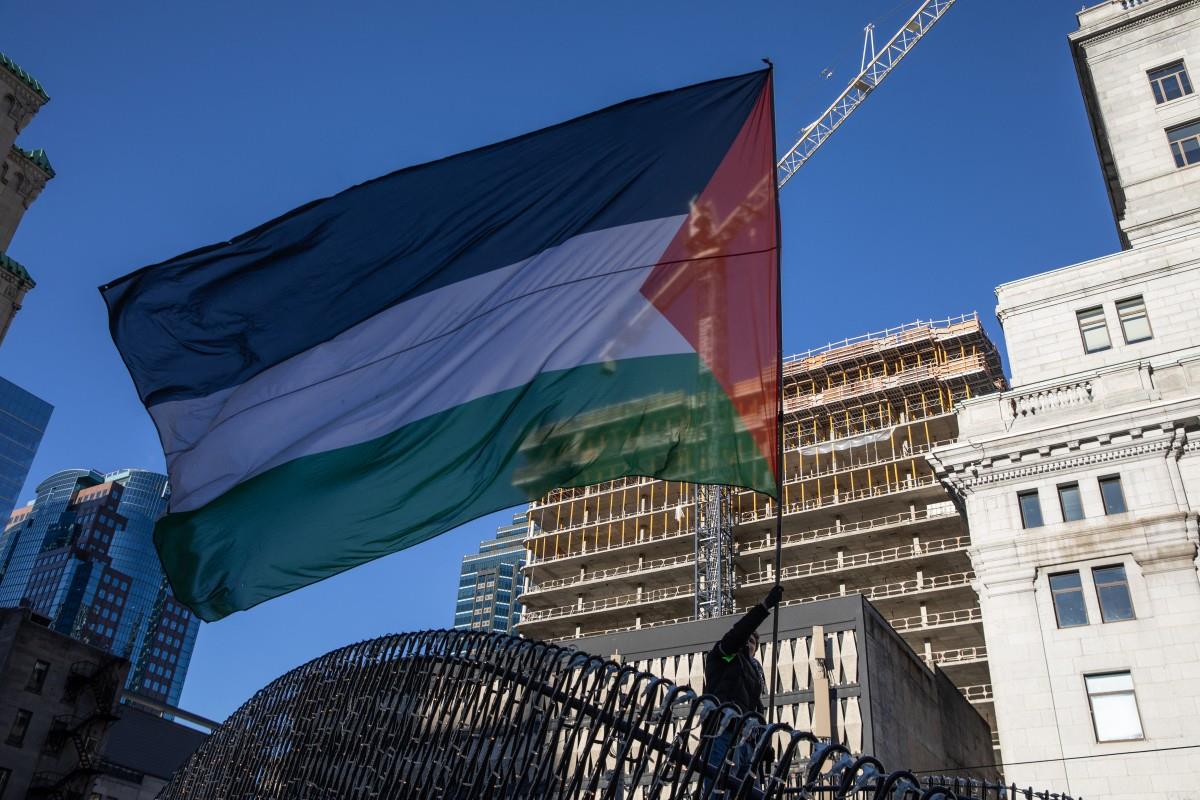
How To Support Palestinian Diaspora During War On Gaza: Qatar Foundation Experts
Doha, Qatar: Qatar Foundation experts speak about the socio-emotional impact of war on Gaza – and how to talk to children about it
Amid the situation in Gaza for over six weeks, people from across the globe have been rallying to call for justice for Palestinians.
Diving deeper into what lies beneath, in the hearts and minds of the Palestinian diaspora and all those who relate to the Palestinian cause, experts from Qatar Foundation (QF)'s Sidra Medicine and QF Pre-University Education's The Learning Center (TLC), have explained the physical and mental health toll on those watching the atrocities of the relentless aggression toward Gaza, and how society can help.
“Witnessing war, losing family members, and being continuously exposed to horrifying footage and videos can deeply impact people's mental as well as physical health,” says Professor and Dr. Muhammad Waqar Azeem, Inaugural Chair of Psychiatry for Sidra Medicine.“This impact varies depending on each person's threshold and past history, where individuals who have suffered mental health problems before in their lives, may find it more challenging to cope.
“Losing loved ones is very difficult. Whoever experiences it usually goes through different stages of grief, which are denial, anger, bargaining, depression, then acceptance. And although not everyone goes through all these stages, it's imperative to watch out for the symptoms and the duration of each stage. If it persists for longer period and starts to affect essential daily activity, then professional intervention is highly recommended.”
Dr. Azeem also highlighted that a lack of communication with family and loved ones due to the siege on Gaza leads to bigger frustration and irritability, as having any information – whether positive or negative – is better than not knowing at all. In addition to advocating for justice and participating in humanitarian aid activations, Dr. Azeem believes that all individuals and institutions in society can extend support to the Palestinian diaspora in many forms.
“Being present and lending an ear goes a long way in providing emotional support,” he said.“At work, supporting activities including individual and group support activities can play a vital role in helping employees maintain their emotional wellbeing at this difficult time.
“In Sidra, we have a Staff Wellness Circle activity, which provides a safe space that welcomes all staff affected by the current situation in Palestine, to process their feelings and find the best ways to cope through sharing and having a sense of collective support. A replica of this model in all sorts of work environments can be very beneficial in providing emotional support during this trying time for many.”
When it comes to explaining the complexity of war and unjust situations to children, Dr. Azeem emphasized the importance of using developmentally appropriate explanations.“Parents need to know how much the child is aware of, and let them speak openly about how they feel,” he explained.“Parents also need to always be honest, yet without generating hopelessness. And most importantly, they need to affirm their children's safety and give them a strong sense of reassurance. In addition, it's important that parents closely supervise the exposure of children to media coverage of different traumatic events”.
“Adults should be conscious about role modeling. It's important that they show calmness and try their best to maintain their daily routine.”
Reinforcing Dr. Azeem's point on recognizing children's tolerance based on their age when explaining war, loss of human rights or other atrocities, Jody Roberson, a psychologist in TLC, underlined the necessity for parents to keep explanations simple at the developmental level of young children, while emphasizing the value of all children's lives and keep an ongoing and clear conversation with older children.
“The way a parent would discuss the loss of life to a grade seven child will be more complex than a discussion of the same topic with a grade two child,” said Roberson.
“This will mean different levels of detail and concepts of discussions for younger or older siblings. The main focus during these discussions is the same – the overall message is safety and security. You can discuss the sadness or the anger that the war is evoking, but maintain calm. This would be time to introduce or reaffirm family values, and that all lives are precious and have meaning.
“Another way to help children channel feelings of anxiety is to give them a sense of purpose, whether by engaging them in donation drives or volunteering activations for aid, which can help them feel they are making a positive contribution to a very negative event.”
Roberson also highlighted that watching the news with older children is the most important factor in helping them understand the bias demonstrated by some media. Providing an adult perspective or alternate theories from a trusted adult can help to minimize the influence that media can have on a child.
“Often, media is seen as a source of authority, and so some children may just blindly listen to whatever the media is saying. And when they hear it over and over, they think it must be true because everybody's saying it and it's all over the internet. This is what media propaganda accomplishes, creating that confirmation bias and collective lens towards the situation.
“That is why I would encourage parents to talk with their children about what media polarization is, to help them develop clarity based on what their family values are. That is what anchors a child's perception and helps them develop a sense of what is right and what is wrong.”

Legal Disclaimer:
MENAFN provides the
information “as is” without warranty of any kind. We do not accept
any responsibility or liability for the accuracy, content, images,
videos, licenses, completeness, legality, or reliability of the information
contained in this article. If you have any complaints or copyright
issues related to this article, kindly contact the provider above.

















Comments
No comment